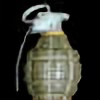HOME | DD
 Sport16ing — Saudi F-14A Tomcat
Sport16ing — Saudi F-14A Tomcat

Published: 2021-06-13 09:16:23 +0000 UTC; Views: 9400; Favourites: 56; Downloads: 5
Redirect to original
Description
Link: www.whatifmodellers.com/index.…
Grumman F-14A Tomcat
#3308, 13 Squadron, Royal Saudi Air Force
Dhahran/King Abdullah Aziz Air Base, 3 January 1981
In 1956, the Shah of Iran began lobbying in Washington for a policy that he called Parity. What he meant by this, was that neutral Iran should receive military equipment from the USA that placed it on a “conventional parity of quality” with Moscow Pact nations to its north. In 1958, the Parity policy was extended to include the growing military power of Iran’s Persian Gulf rival, the UN member Saudi Arabia. In terms of aviation, this saw both Iran and Saudi Arabia acquire F-104G Starfighters, although Iran also established an assembly line. Later, when Saudi Arabia purchased the Sparrow-armed F-104S, Iran built its similarly-armed F104P. Both bought F-5A/B/RF-5A Freedom Fighters in the mid-1960s and when, in 1972, Saudi Arabia placed an order for 80 F-5E/F-5F Tiger II, Iran was expected to follow suit. In 1973, though, Iran ordered 110 A-7P Corsair IIs instead, then followed-up with an order for 80 F-15A/B Eagles later in the same year. Concerned that the Parity policy was favouring its Gulf rival, Saudi Arabia trumped the Iranians with an order for 80 F-14A Tomcats in 1976 (to replace the F-104S).
Alarmed that his F-15s would be out-ranged by Saudi AIM-54A Phoenix-armed Tomcats, the Shah pressured Washington to either delete this capability or provided a considerably downgraded version of the weapon, one with shorter range and tailored to intercepting bombers rather than fighters. US Secretary of State Henry Kissinger responded to the Shah with a “leave it to me.” The first public sighting of a Saudi Tomcat toting Phoenix came in Hughes’ 1978 Annual Report, which showed an RSAF F-14A armed with, to quote the caption, “a full load of six AIM-54 Phoenix.” Notably, these missiles of an unidentified subtype featured dull grey shaded radomes, unlike the AIM-54As supplied to the US Navy. The text opposite the photograph stated that “development work on the AIM-54B has been completed.” This version was previously publicly unknown and came with no additional information. The Iranians took the hint and assumed that the unidentified AIM-54 subtype on the Saudi F-14As was downgraded, export-standard AIM-54Bs. Little did they know that the AIM-54B was an abandoned “dry” version with simplified construction and no coolant conditioning; but this was not revealed until 1985.
It was with this false knowledge that the Islamic Republic of Iran Air Force (IRIAF) planned Operation Alak-dolak ("peg [and] bat" - a traditional game). After Iran destroyed most of the Iraqi Navy’s surface combatants and blockaded exports from the Al Başrah Oil Terminal in November 1980, Iraq responded by opening its oil pipeline Mina al-Ahmadi in Kuwait (built in the 1970s due to the insecurity of the Shatt al-Arab) and launching an aerial campaign against the oil export terminal at Kharg Island and attacking the oil tankers that the port serviced. On 3 January 1981, four Iraqi-flagged tankers left Mina al-Ahmadi in a convoy. The Iranians were unaware that they were being shadowed by a Kuwaiti Navy patrol vessel and a Kuwaiti-owned tanker, this offering the Iraqi’s some measure of UN protection. Taking into account the known and expected whereabouts and capabilities of Iraqi, Kuwaiti and Saudi aircraft and ships, the Iranians planned Operation Alak-dolak as an aerial anti-shipping attack on the convoy that exploited a few minutes of vulnerability, when its air cover would be at a minimum. Colonel Omid Ebrahimi, who was flying an A-7P on that mission, would later say that “if we knew the Sauadi Tomcats had full-spec Phoenix, we wouldn’t have done it, but we were working with faulty intelligence.”
The details of the engagement are not fully clear and accounts dispute key facts. What is known, though, is that two A-7Ps attacked the Iraqi tanker convoy with AGM-65B Mavericks and BL775 cluster bombs, also targeting the nearby Kuwaiti tanker. Two more Iranian jets, both F-15As, formed a barrier CAP between the convoy and two patrolling Saudi F-14As. Alerted that the Kuwaiti tanker was under attack, the UN Combined Air Operations Center (CAOC) in Riyad gave orders for the Saudi Tomcats to open fire on the Iranian jets. One of the F-14As launched an AIM-54A at each of the Eagles, shooting down one (its pilot ejecting and later being rescued) and forcing the other to make an emergency landing.
The other Tomcat crew targeted the A-7Ps, who were making multiple runs against the tankers. Firing all three of their AIM-54As, both Corsair IIs were hit. Colonel Omid Ebrahimi was able to make it to land before ejecting safely, while his injured wingman was rescued by the crew of the Kuwaiti patrol boat. For security reasons, the Saudi aircrew has not been publicly identified, but this Tomcat, #3088, has been photographed and captioned in official publications as one of the two jets involved in the combat. One official series of photographs for this plane includes the caption that it is shown “in its combat configuration.” These photos show it armed with two AIM-9M Sidewinders, two AIM-7M Sparrows and three AIM-54A Phoenix. The oft-cited reason for this configuration comes from a Bill Sweetman article (Aviation Week & Space Technology, March 18, 1985). Sweetman wrote that Grumman sources told him that the connections to the aircraft’s rear pair of LAU-93 missile launcher racks were faulty. While waiting for parts, #3088 was armed with three AIM-54As with an AIM-7M in the rear fuselage station. Apparently, the other Tomcat involved in the shoot-down had two Sidewinders and two Sparrows, with four Phoenix under the fuselage
Related content
Comments: 4

👍: 0 ⏩: 0

👍: 2 ⏩: 0

👍: 0 ⏩: 0

👍: 2 ⏩: 0

















